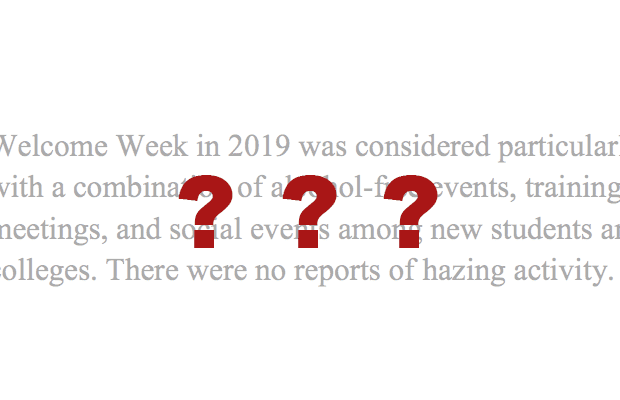St Paul’s College has released today its ‘Progress Report’, marking a headway made in implementing the recommendations of the infamous 2017 Broderick Review into residential college culture.
The 44 page colour-coded document designates three progress levels: completed/in place and ongoing, in progress, and delayed. Of the 50 recommendations, 38 are designated as completed, and only one as “delayed.” This report is said to be the first of many progress reports, with more scheduled to be published periodically in the future.
Some claims made by the Report appear to overstate the success of the implementation of certain recommendations. Though it is noted in the Report that there were “no reports of hazing activity during Welcome Week”, there is no mention of allegations of hazing during the College’s annual Anzac Day celebrations – despite such allegations emerging at least six weeks before today’s release date.
Ambiguously, the report further states that “the commitment of student leaders has been reflected … in their very successful efforts to ensure that the 2019 Welcome Week was inclusive, respectful, and safe.” However, during Welcome Week this year, Honi reported on the alleged involvement of an Assistant Sub-Warden and Peer Support Leader of the College in a scheme to pay first year “freshers” the two dollar fee required to sign up to the Sydney University Liberal Club.
Allegations such as these appear overall to undermine the wider picture of progressive momentum put forward by the College in its inaugural report of this kind. On this, the College told Honi in a statement that, “the purpose of the Progress Report is to report on the specific actions that the College has taken and is taking to implement the recommendations of the Broderick Review … the actions taken by the College to date are comprehensive.”
Furthermore, while the Review recommended students perpetrating hazing to be “held to account,” the Report does not give any explanation as to the disciplinary action faced by perpetrators, and how it is enforced in light of incidents. Instead, it concludes that when a hazing incident is reported, “thorough investigations are conducted by the sub-Warden and presented to the Warden.”
Nor is it certain that this report is representative of the sentiments of the student body of the College.
Honi understands that reform coming from adult governance structures has not been well received by all Paulines, with some feeling locked out of conversations on cultural reform.
The engagement of St Paul’s College with the Broderick Review has been more problematic than its residential college counterparts; it was the last college to join the Broderick process after having initially boycotted it in favour of internal investigatory processes in 2017. Since the appointment of Don Markwell as Warden in 2018, it has nonetheless been argued that St Paul’s is “moving in the right direction.”
The full Progress Report can be viewed here.





